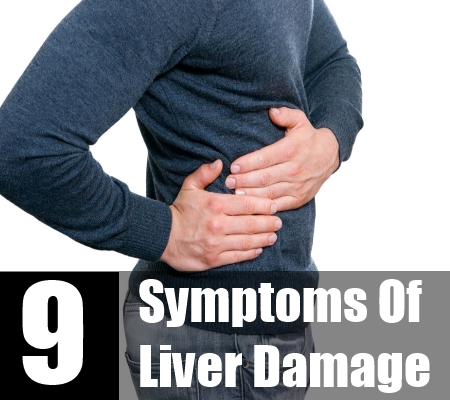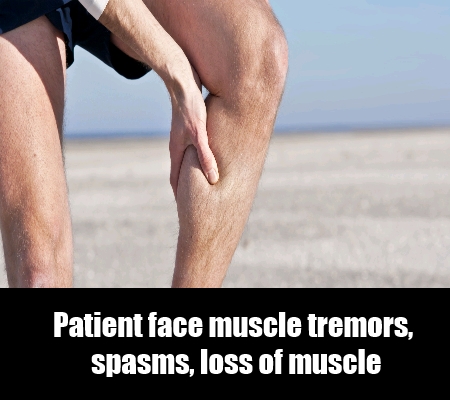Liver plays an integral part in the process of digestion by processing nutrients such that they are readily available for apt use by the human body. This unique, solid organ also works as a filter that refrains toxins from accessing the blood stream and closely maintains the normal composition of blood. Damage to the liver covers diseases that involve this particular organ, and are categorized under liver or hepatic disease.
Therefore, signs and symptoms linked with liver related problems or dysfunction cover physical alterations as well as an array of symptoms that surface as problems in the digestion process, absorption or metabolism. Problems related to level of blood sugar and nervous system is seen too. To summarize, the largest internal organ in the human body is subjected to damage from any of the following factors. It can be either due to compromised flow of blood to the liver, tissue damage induced by toxic chemicals, obstruction to the flow of bile and accumulation of cholesterol or triglycerides.
Not to forget, long term, limitless intake of alcohol is one of the most prominent causes associated with liver problems, along with obesity and excessive intake of certain medications. Read through the below explained common symptoms of liver damage for a better insight.
Common Symptoms Seen In Liver Damage
Development Of Jaundice
Amongst other roles and responsibilities carried out by the liver, breakdown of a substance known as bilirubin is negatively affected in case of liver damage. As a result, the bilirubin being released from senile erythrocytes (or red blood cells) begin to accumulate in the blood circulation. This change causes the skin plus sclera (white part of the eye) to exhibit a mild, moderate or severe degree of yellowish discolouration, medically termed as Jaundice. In cases where infection is the causative agent of liver damage, additional symptoms, such as that of high grade fever and/or chills are also seen. Also, the skin begins to show a tendency to itch (pruritus), which occurs in response to the pile up of bile salts in the blood stream. As for the blood vessels, they may stretch resulting in appearance of fine spider veins, especially in the region of palms. Many doctors believe that initiation of jaundice is often the first (and many a time, the sole) sign indicative of damage to the liver organ. Even the colour of urine and stools undergoes a change, resulting in dark urine and pale stools.
Abdominal Pain And Swelling
Patients with advanced liver dysfunction are at an increased risk of suffering from varying degree of abdominal swelling. This type of swelling takes place owing to enlargement in the size of liver and development of ascites. The latter refers to build up of fluid in the abdominal cavity in response to leakage of fluid. This surplus fluid causes bloating, discomfort and needs to be pulled out by a procedure of peritoneal paracentesis.
Pain and discomfort are experienced in the upper right segment of the abdomen.Many a time swelling also targets other parts of the body; for example legs. Some of the other gastrointestinal clinical features are nausea, vomiting and varying severity of diarrhea or constipation.
Tendency To Bleed Increases
As you already know, liver performs more than one function in the body. It is the liver that produces proteins (called clotting factors) that deal with the mechanism of blood coagulation and any type of damage to this organ can hinder the normal pathway of blood clotting. This, in turn, makes the affected individual prone to frequent bruising of the skin and excessive bleeding; even whilst brushing or flossing.
Increased Susceptibility Towards Infection
People dealing with liver disorder or those at the end stage of liver failure become highly susceptible towards infection. Development of ascites further puts them at a risk of bacterial infection, called spontaneous bacterial peritonitis.
Impairment Of Brain Function
Another symptom, which is most, frequently seen in cases of severe or advanced liver damage, is impairment of brain function caused by hepatic encephalopathy. This condition is marked by degradation of the brain working due to failure of liver in removing lethal substances from the blood stream. As toxin laden blood reaches the brain, impairment in cognition may be observed. This includes feelings of confusion and deterioration in the ability to think logically.
Personality and behaviour undergo changes too, making the affected person more lethargic, drowsy, and he or she may show a certain degree of speech deferment. In worse scenarios or in untreated cases, patients become unconscious and may even fall into hepatic coma.
Loss Of Appetite and Weight Loss
In cases of extensive liver damage, patients complain of reduced appetite. Such people do not feel like having food, which consequently results in the drop of body weight and weakness. Mostly, this change occurs in conjunction with discolouration of the skin and eyes.
Gynecomastia
As the liver takes part in production of certain hormones, liver damage results in hormonal changes. With a decline in the hormone level, specifically testosterone, men with liver disorder begin to notice certain changes, such as enlargement of breast tissue. Thus, symptoms of gynecomastia are related to hike in the level of estradiol. Other symptoms include decline in sex drive, erectile dysfunction (ED) and decrease in the size of testicles.
Recommended Products
Changes In Muscles
If damage to the liver progresses towards liver failure, it can result in several problems involving the nerves, inclusive of those in the brain. Some of the manifestations include muscle tremors, spasms, loss of muscle etc. Not just that, people with diseased liver may have to live with a condition known as Dupuytren’s contracture. In this, the fingers curl up due to shrinkage of tendons in the hands. Another reason for muscle wasting is linked with hampered processing of problems in the liver.
Fatigue
Chronic fatigue or feelings of general malaise is another symptom that may be seen in liver damage. Normally, liver produces specific enzymes that assist in the breakdown of food so as to liberate the energy for use. However, this does get impaired in cases with considerable liver damage. Insufficient production of energy makes way for constant physical exhaustion, and this is why such people do not feel better even after many hours of sleep and rest.
Caution: Please use Home Remedies after Proper Research and Guidance. You accept that you are following any advice at your own risk and will properly research or consult healthcare professional.











